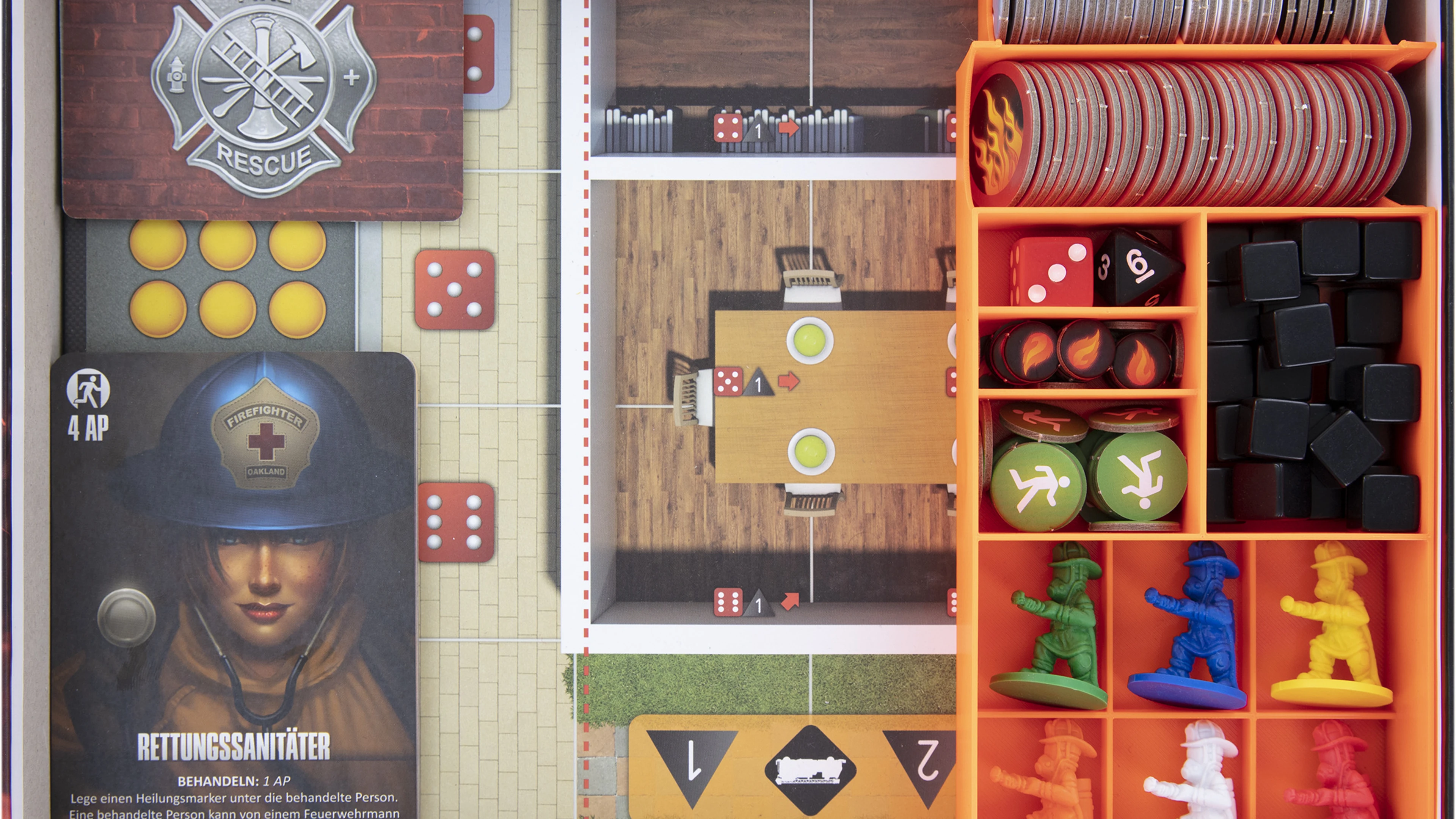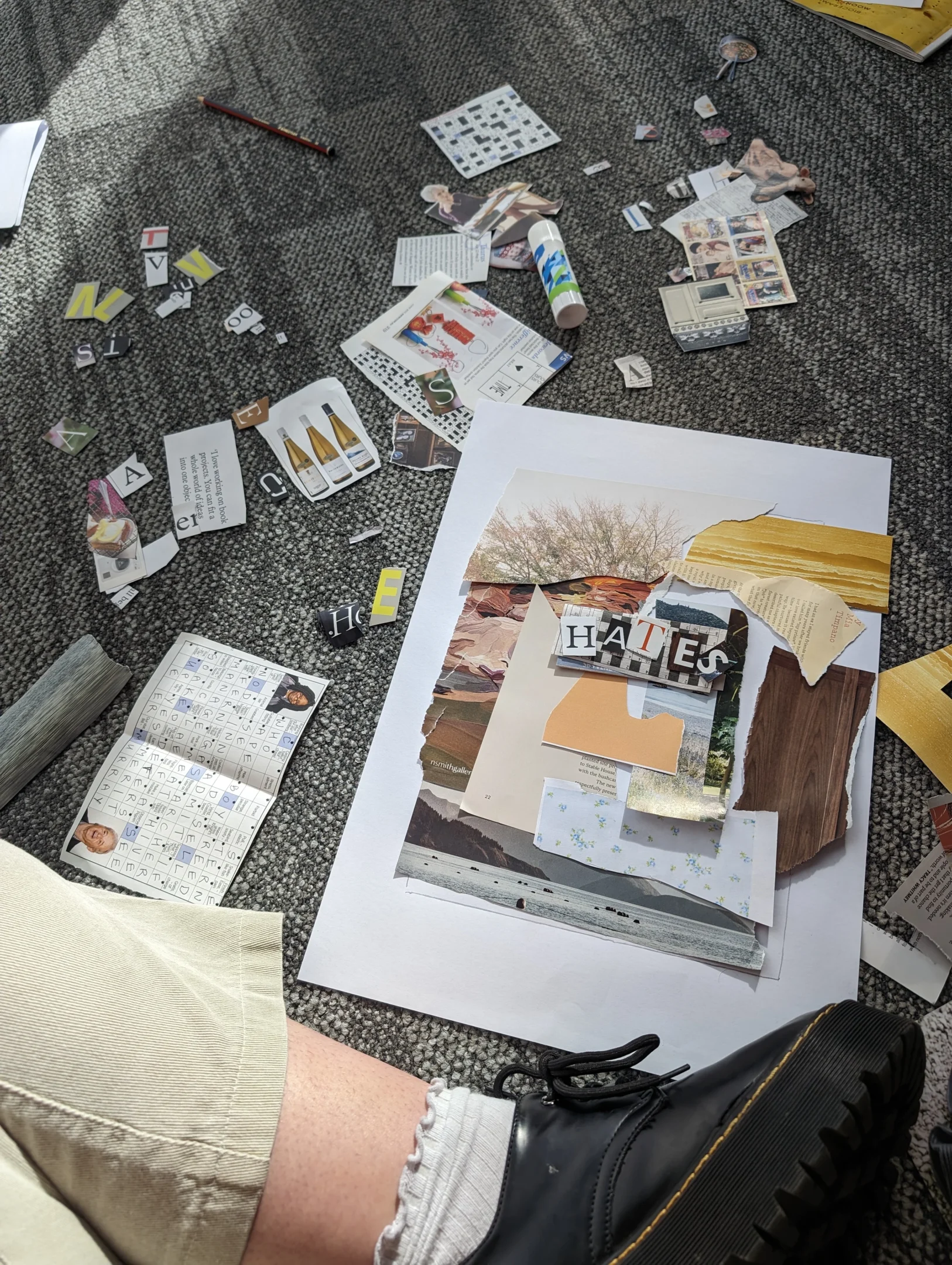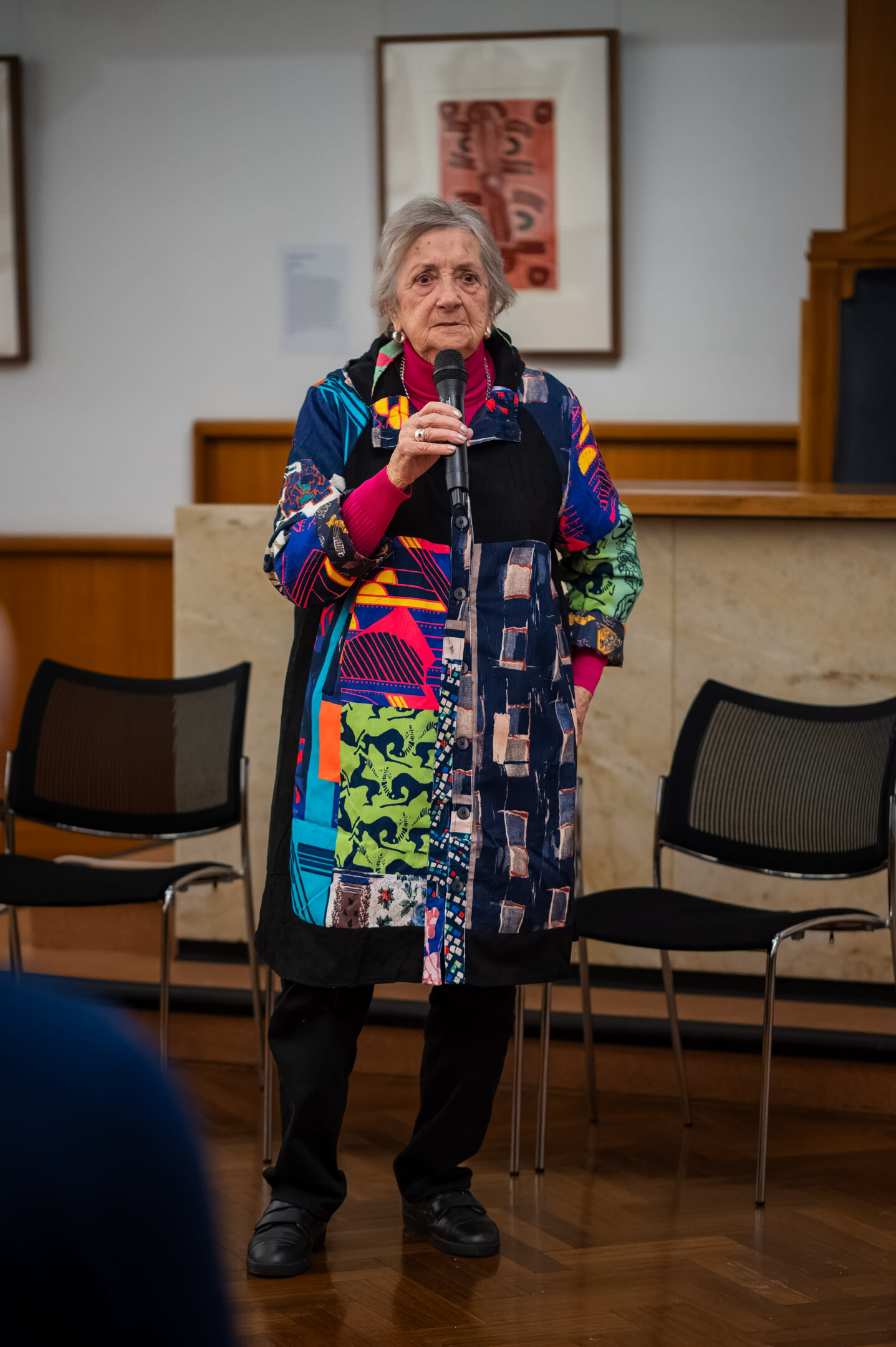27th July, 2024
I grew up in a very big, very busy family – so every so often, my mum would insist on some dedicated ‘family time’. Of course, family time generally entailed a Monopoly board. I suffer from a relatively short attention span, dyscalculia and a general disdain for the buying and selling of capital, so Monopoly was not my ideal family bonding set-up (sorry, Mum). I’ve been heard many-a-time declaring that “they’re called bored games, for a reason…” – but if I’m honest, I’ve just held a grudge because I never had a chance in hell at winning.
In the very recent past, I’ve realised; maybe winning isn’t the whole point.
What goes into the makings of a game? How do things like genre, theme and setting contribute to the methodology and mechanics of game play? How might the game-playing experience inform or reflect processes, ideas and industry in ‘real-life’?
Well, through playing the infamously complicated tabletop game ‘Flash Point: Fire Rescue’, I’ve done some much needed research – of course, all in the name of healing the bruised egos of those who’ve lost a family game night.
Some Basic Info on Flash Point: Fire Rescue
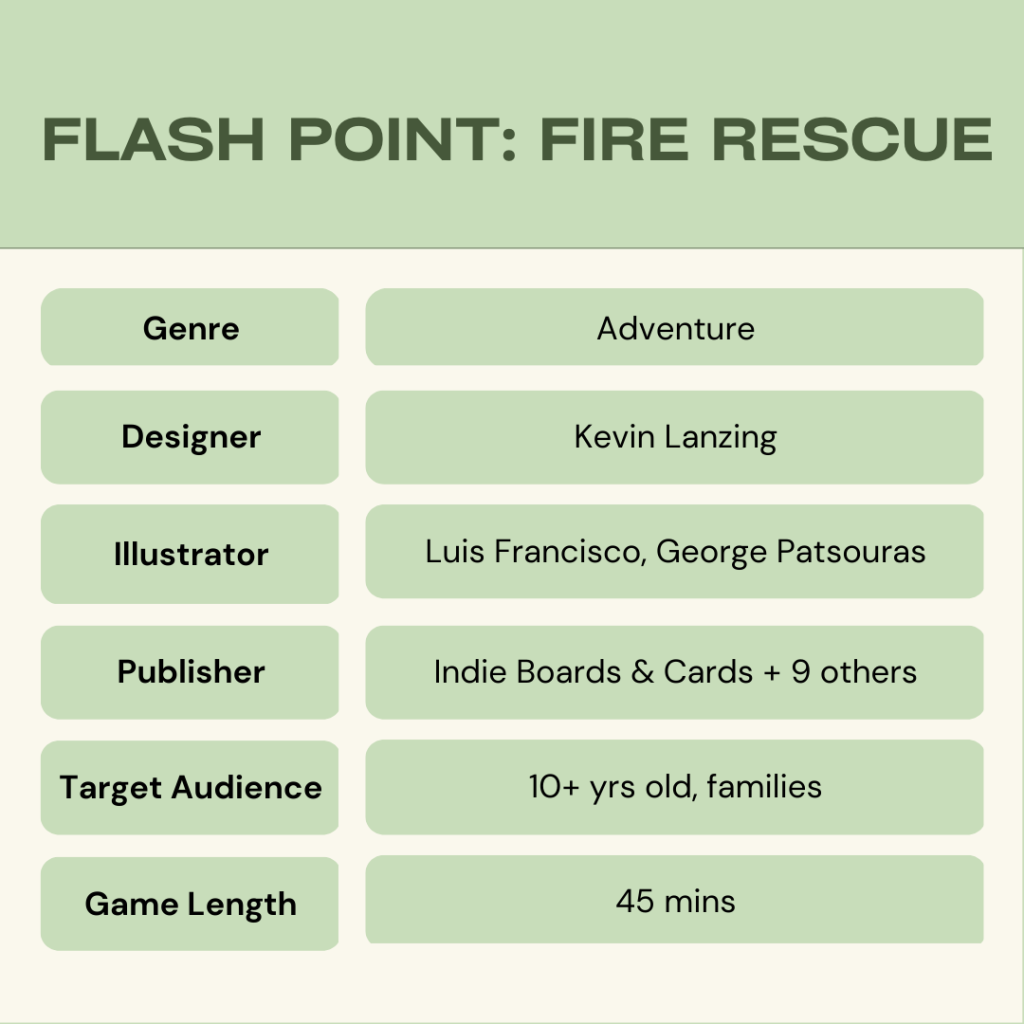
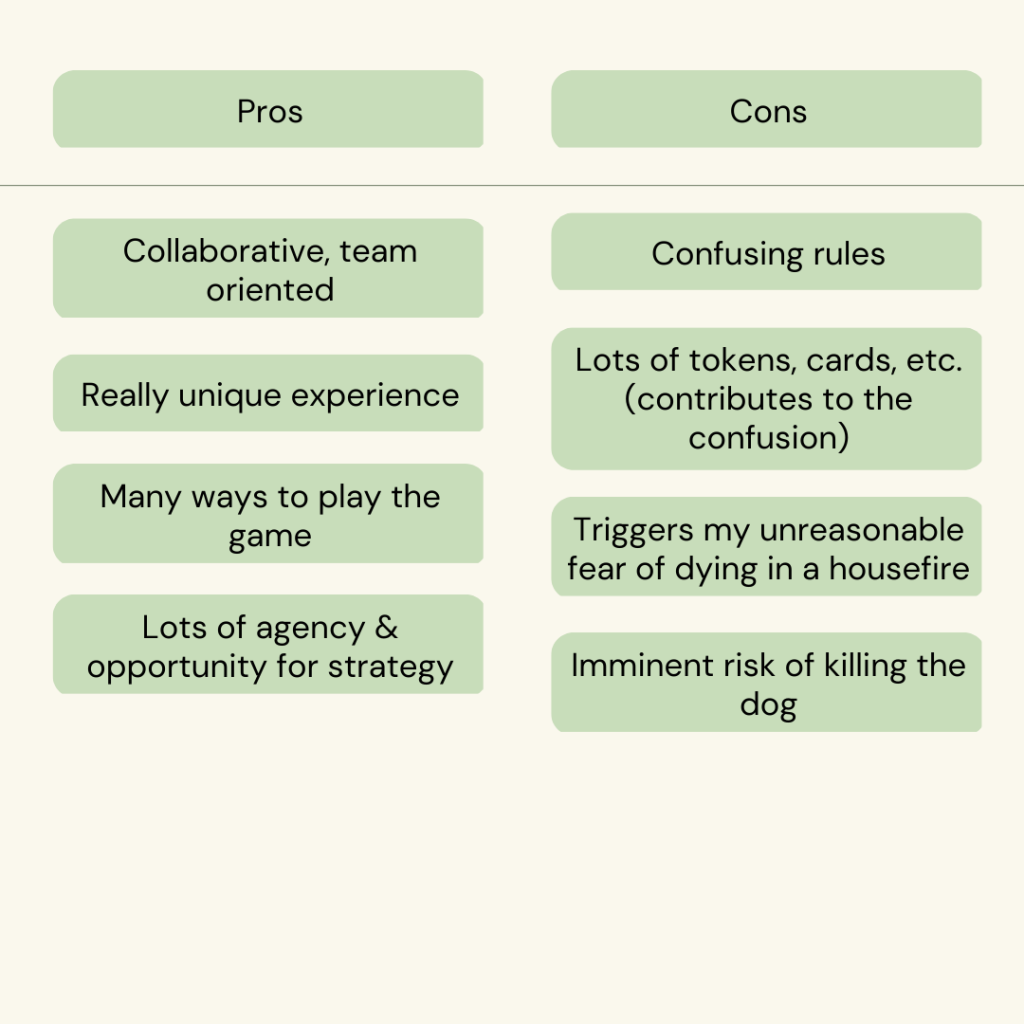
Source: https://boardgamegeek.com/boardgame/100901/flash-point-fire-rescue
Flash Point: Fire Rescue is a cooperative board game designed by Kevin Lanzing where players team up to take on the roles of firefighters trying to rescue victims from a burning building. The goal of the game is to rescue 7 victims before the building collapses or too many are lost.
The game board represents a building with several rooms and hallways. Each turn, players can move their firefighters around the building, extinguish fires, and search for victims. Players can also use special tools like axes and chainsaws to clear paths and open up blocked areas.
As the game progresses, new fires break out, explosions occur, and the building becomes more unstable. Players must work together to prioritize which areas of the building to focus on and decide when to make a risky move to try to save a victim.
If you’re a mega nerd and want to know more, I found this YouTube video of King Nerd Wil Wheaton playing Flash Point Fire Rescue:
Collaborative Games vs. Competitive Games
The main element of Flash Point that stuck out to me while I was playing it is that there is no particular sole winner or loser – you play as a team, so we all win or we all lose against the situation in the game. I enjoyed the collaborative nature of the game, and I believe it opened up a collective discourse among my teammates as we slowly figured out how we are to play. According to this paper from 2013, this collaborative approach to game play significantly alters the way players interact with the game and with each other – by which I mean to say, maybe Flash Point would have been a more conducive family bonding exercise.
“Cooperative gameplay emphasizes collaboration and communication among players, who work together to achieve a shared goal. In contrast, competitive gameplay tends to focus more on individual achievement and outwitting or outmaneuvering other players.”
(Zagal, Mateas, & Fernandez-Vara, 2013, p. 8)
Rules are there to bend!
We took a rather long time to figure out how to play flash point. The rule book is rather long and convoluted, and there are an overwhelming amount of tokens involved, as well as two different dice. Naturally, at some stage, we searched for some instruction on YouTube. I am sorry to report that this did not clear things up, as we came across a video that claimed that this game was about ‘flirt tokens’ and ‘hooking up with the hottest fire man at the party’. We later figured that this was a ‘house rules’ version of game play.
One of the unique features of Flash Point Fire Rescue is that it offers different ways of playing the game through different sets of rules. For example, the game comes with a “Family Rules” mode, which simplifies the gameplay and makes it more accessible to younger players or those who are new to the game. Many players enjoy creating their own house rules or customising the game to their liking. This flexibility allows for a variety of play styles and preferences, and can create a more personalised and engaging experience for the players.
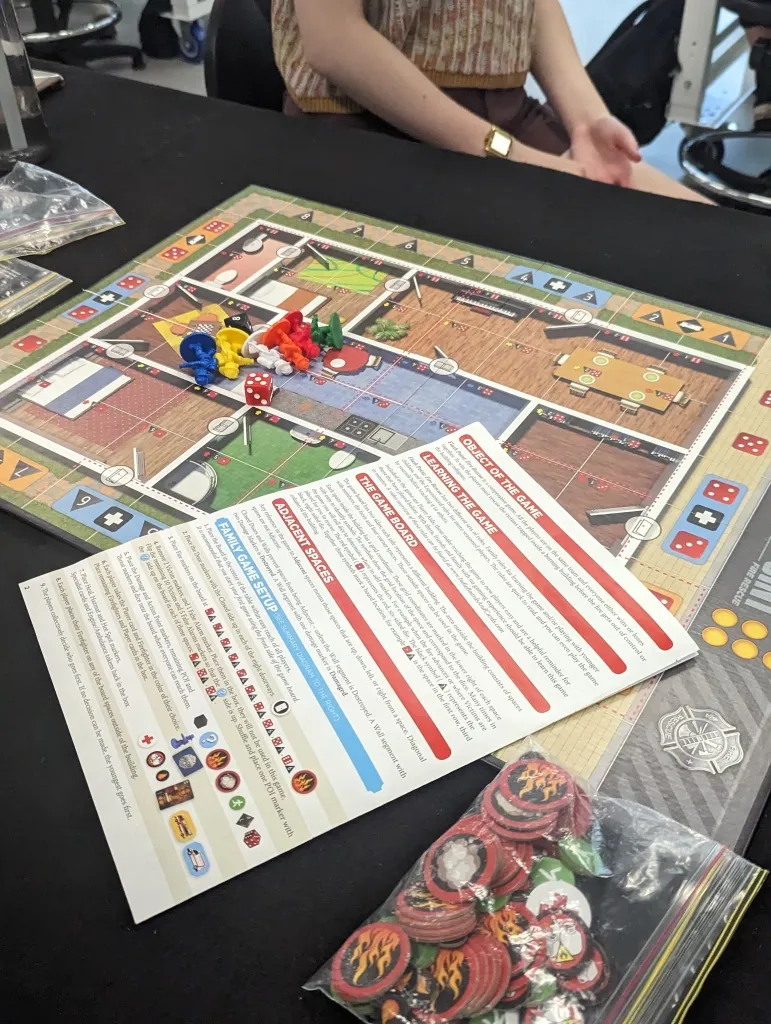

This stands in contrast to other tabletop games that may have a more rigid set of rules and gameplay mechanics. While these games may offer a sense of structure and balance, they may not allow for as much creativity or customisation in gameplay. The ability to play Flash Point according to different sets of rules reflects the game’s social context, which values inclusivity and adaptability. By offering different modes of play, Flash Point allows players to tailor their experience to their individual needs and preferences, making for a more engaging and enjoyable gaming experience.
“Games are rule-based systems that facilitate and encourage play, and they have a beginning and an end. They are voluntary activities, separated from reality by a veil of fiction, where players adopt roles and follow the rules of the game in order to reach a goal.”
Chapter 3 of “What is a Game?” by Simon Egenfeldt-Nielsen, Jonas Heide Smith, and Susana Pajares Tosca
While this was challenging, we eventually figured out the basics. I’m still not sure that we played correctly, but I found it interesting how players might opt out or construct their own rules and ways of playing a game. In the case of Flash Point, this factor introduces another level of collaborative play that is central to the game’s infrastructure. Plus, I would argue that figuring out the rules was a team challenge in itself, before we even rolled a die.
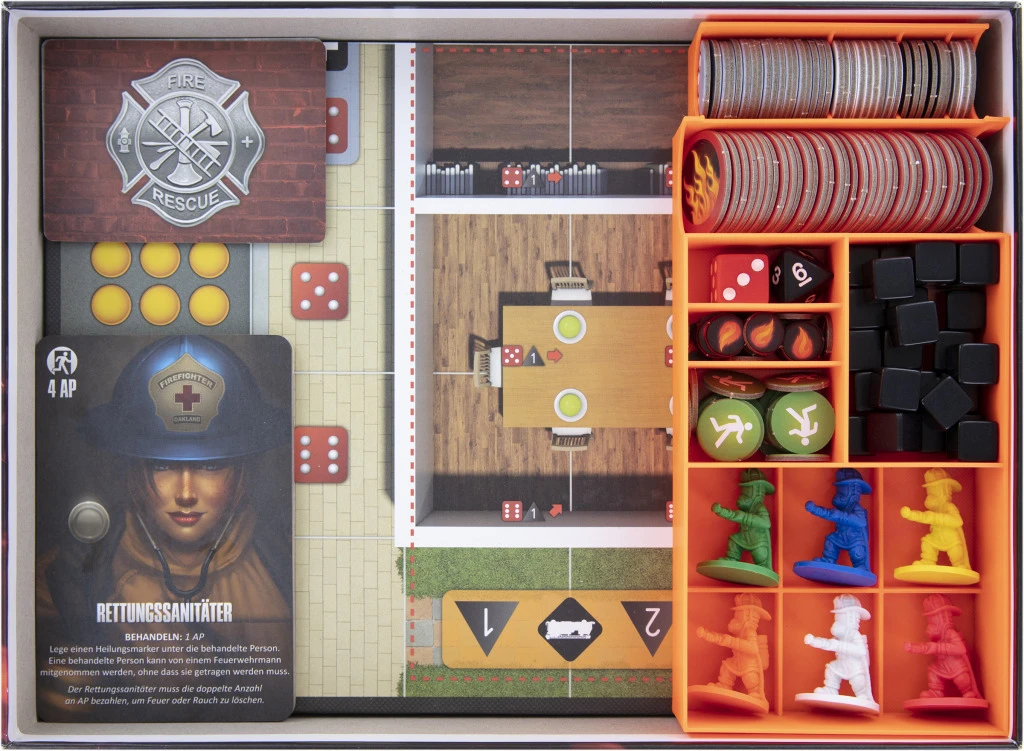
Juul, 2008 defines play as “free movement within a more rigid structure.”, that is to say that games involve a level of agency being afforded or taken away from the players in order to function. In the case of Flash Point, agency is awarded through the choices made available to the players – (team strategy, type of move, use of points/pieces) and restricted through the rules and premise of the game. Players can choose to move, save a victim or put out a fire, but their ability to choose between these options are increasingly limited as the game goes on and the fire spreads on the board.
Sicart (2011) says that “Games should be designed as ethical systems.” and that could not be more relevant to the design of Flash Point. At some stage in the game, we found out that a victim we were trying to save was a dog and not a person. Of course, we all became wary over the possibility of a toasted puppy and thankfully rescues him from the burning house. I thought this reaction was interesting though, as even though the situation was hypothetical, we found ourselves becoming emotionally involved in the scenario. While some scholars define play as “not real” or “not productive”, Kearney (2018) poses that tabletop games are a useful tool in developing and studying empathy, bringing the experience of game play into the real-world perspective.
“Tabletop games provide a safe space for players to explore and experiment with different perspectives, promoting empathy and encouraging players to consider the world from the perspective of others.”
– Kearney, S. (2018)
Games can reflect real-life processes and ideas, as they require strategic thinking, problem-solving, and collaboration. They can be used as an educational tool to teach and reinforce important concepts, such as teamwork, critical thinking, and decision-making. Game theory has real-life applications, from economics and politics to evolutionary biology and social psychology, and its concepts have been applied to various fields to analyse human behaviour and decision-making.
Games can bring people together, in an effort to solve a common problem – they’re not always a matter of winning and losing. You might say, the real winnings are… the friends we make along the way. *que cheesy laugh track*
References
- Zagal, J. P., Mateas, M., & Fernandez-Vara, C. (2013). Collaborative games: An overview. In J. P. Zagal, M. Mateas, & C. Fernandez-Vara (Eds.), Collaborative gaming and game design: A practical guide (pp. 3-22). CRC Press.
- Egenfeldt-Nielsen, S., Smith, J. H., & Tosca, S. P. (2016). What is a game?. CRC Press.
- Flash Point: Fire Rescue. (n.d.). BoardGameGeek. Retrieved March 25, 2023, from https://boardgamegeek.com/boardgame/100901/flash-point-fire-rescue
- Juul, J. (2008). The magic circle: Principles of gaming & simulation. University of Chicago Press
- Kearney, S. (2018). Playing with empathy: How tabletop games can enhance empathy and perspective-taking. Simulation & Gaming, 49(5), 607-626. doi: 10.1177/1046878118790472.
- Sicart, M. (2011). Against Procedurality. Game Studies, 11(3). Retrieved from http://gamestudies.org/1103/articles/sicart_ap
- Wil Wheaton. (2014, February 13). TableTop: Wil Wheaton plays Flash Point: Fire Rescue w/ guests Emma Caulfield, Kelly Hu, and Jon Heder [Video]. YouTube. https://www.youtube.com/watch?v=UjCvC6NHIBU


